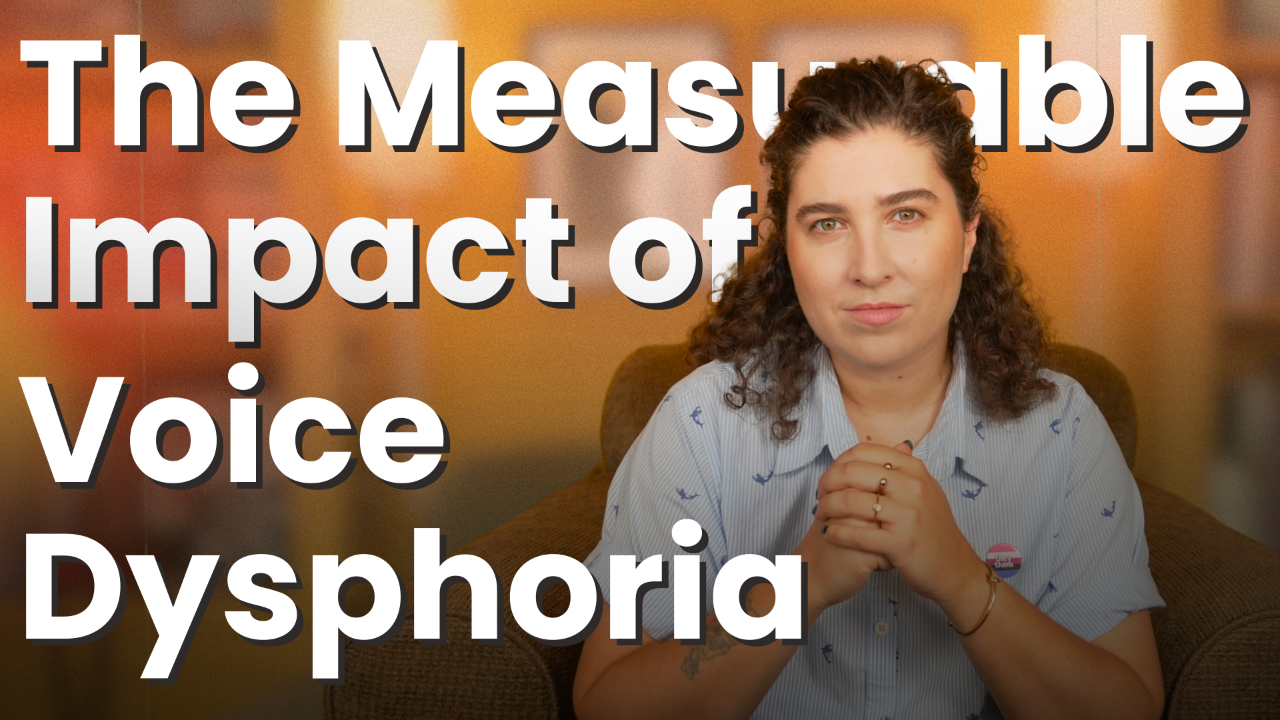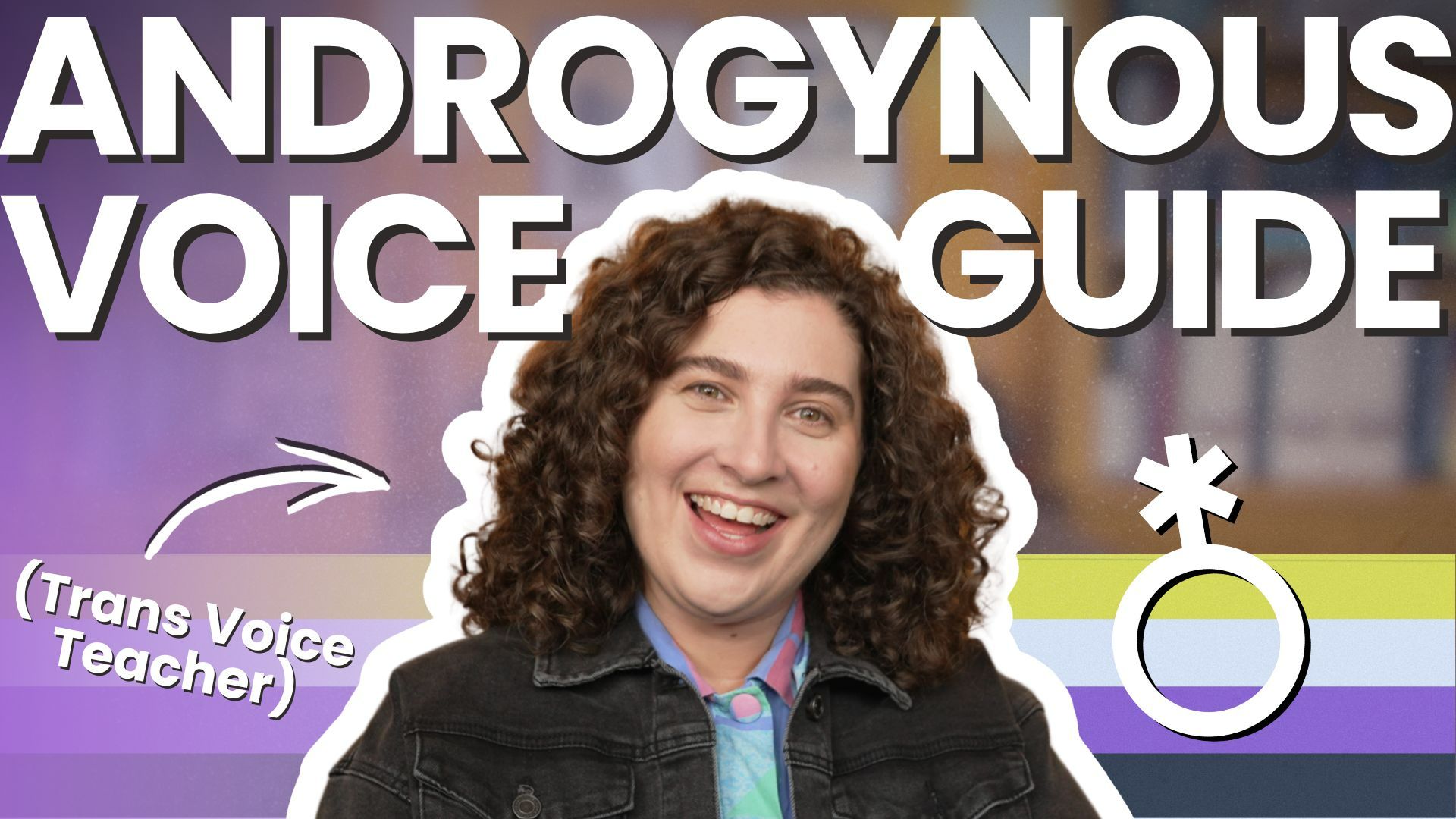Mental Practice: How to trans voice train in complete silence 🤫
Nov 13, 2023
Have you ever found yourself in a situation where you wanted to work on feminizing or masculinizing your voice, but you couldn't make any noise? Maybe you share a room with someone, like a sibling, and you barely have the opportunity to practice. Or perhaps you're not ready to come out yet, and you need to keep your voice work a secret. Don't worry; there's a solution that might surprise you – it's called "mental practice."
Mental practice, also known as motor imagery, is a powerful technique where you visualize your practice silently in your head. It might sound unusual, but it's a widely used method in various disciplines, such as sports, music, dance, and even medicine. Think of it as a way to train your brain without making a sound. For example, a surgeon can mentally walk through each step of a surgery, a musician can imagine playing a complex piece of music flawlessly, and a dancer can rehearse an entire choreography in their mind.
When it comes to trans voice work, mental practice has an added advantage – it helps you develop your ability to "audiate." Audiation is the skill of clearly imagining sounds in your head, much like how visualization works for visual tasks. Initially, this may seem challenging, but it's a skill that can be honed with practice. In fact, you can probably audiate a trending TikTok audio effortlessly right now!
So, the next time you find yourself in a situation where you can't practice your voice out loud, try visualizing the actions and audiating the results. It's a creative way to keep improving, even in complete silence.
Now, I can already hear some of you wondering, "Does mental practice actually work?" The short answer is yes, but let me explain further. Mental practice has been shown to enhance physical performance, learning, and skill development in various domains. When it comes to voice work, the brain doesn't differentiate between physical and mental practice, so the neural pathways involved in vocalization can be strengthened through mental rehearsal.
Let me share a personal anecdote. I've been a singer for the past 20 years, and I know that finding a quiet, private space to practice isn't always easy. There have been numerous times when I've had to rely on mental practice, and it has undoubtedly helped me work on a piece without the need for vocalization.
To get started with mental practice, you can follow these simple steps:
- Find a quiet and comfortable place where you won't be disturbed.
- Close your eyes and take a few deep breaths to relax.
- Visualize the specific aspects of your voice that you want to work on. For instance, imagine yourself speaking in a higher pitch or using a different resonance.
- Focus on the details – pick a specific exercise and remember each step.
- Try to "hear" the desired sound in your mind. Audiate it as vividly as possible.
- Repeat this mental practice regularly, just like you would with physical practice.
One key aspect of mental practice is consistency. The more you engage in it, the more effective it becomes. Over time, your ability to audiate and control your voice will improve. You'll be amazed at how you can fine-tune your voice in your mind, which will ultimately translate to better control when you speak out loud.
Now, let's talk about audiation in more detail. Audiation is the auditory equivalent of visualization. It's the ability to hear and process sounds in your mind, just as you would perceive them in the external world. Developing audiation is a valuable skill, not only for voice work but also for various aspects of life.
Imagine being able to audiate a song you've never heard before and hum it perfectly - this skill is so important for composers and songwriters. Or recreating a conversation in your head with the exact intonation and pitch you desire. Audiation opens up a world of possibilities when it comes to controlling and adjusting your voice. It allows you to practice and experiment mentally before applying these changes in real-life situations.
So, the next time you're stuck in a room you share with someone or find yourself in a situation where you can't practice your voice out loud, give mental practice a try. Visualize the action steps needed to work on your voice, and audiate the results you want to achieve. It's an ingenious way to continue your voice journey in complete silence.
Happy practicing!
Want weekly tips, resources, and insights on trans voice training? Sign up for my newsletter and get the latest content delivered straight to your inbox. It's free!









